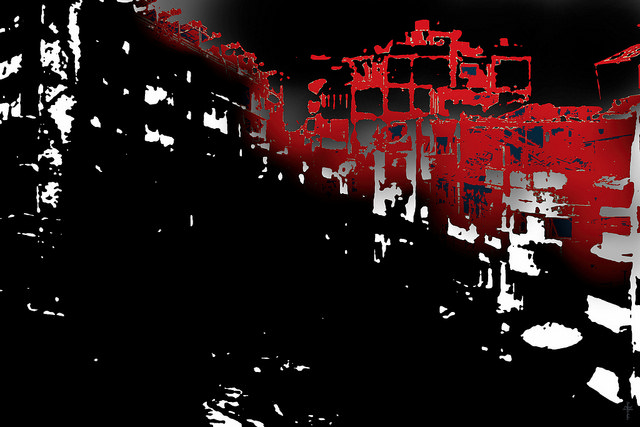Patti Smith rocked the Nobel Prize gala in Sweden singing “A Hard Rain’s A-Gonna Fall,” a Bob Dylan classic from the 1960s era of the civil rights struggle and protest against the Vietnam war.
As noted by James Warren in Vanity Fair, Nobel Prize honouree Dylan revealed the meaning of that song 50 years ago in a recorded conversation with Studs Terkel, the oral historian of the American working class.
“A Hard Rain” is about the poison coming from the establishment and carried by the media, explained Dylan: how do we protect our brains from it?
Reporting by the Washington Post about Russian cyber espionage on the Democratic National Committee (DNC) has attracted a storm of comment and attention. Leading U.S. liberals such as Van Jones, Paul Krugman and Bill Moyers have accused Russia of helping swing the presidential election to Trump.
As pointed out by Kevin Ryan, a retired general now at Harvard, the Washington Post reports, followed by similar accounts in the New York Times, were based on third-party accounts, i.e. what someone said, to someone who had read CIA assessments.
No connection between Russia and the leaked DNC documents that appeared on Wikileaks was documented by public figures or reporters. It could be supposed the Russians were cyber spying on the U.S., as, after all, the U.S. cyber spy on the world, including its own allies, and this was affirmed from various sources. But nothing reported was good enough to meet academic standards for evidence without leaks traced to Russian authorities.
DNC negligence was disclosed, however. John Podesta, Clinton Campaign Chair, responded to an illegitimate request to change his password, being persuaded it was legitimate by a staffer error. This disclosure would have allowed a hack leading to the Wikileaks publication of the Podesta emails (evidence showing collusion against Bernie Sanders by the DNC).
A former U.K. ambassador and close associate of Wikileaks founder Julian Assange declared he received in person documents from inside sources that made up the DNC emails and the Podesta leaks.
The Trump victory over Clinton and the capture by Republicans of both the Senate and the House of Representatives has inflamed the already fierce partisanship that characterizes recent American politics. Democrats and Republicans alike are ready to believe the worst about each other.
Confirmed Monday as the next U.S. president by the Electoral College, Donald Trump is a repugnant figure to many Americans, and many more around the world.
The American foreign policy establishment (neocons and others) opposed Trump. Particularly upsetting was that he did not share their belligerence towards Russia and its despotic leader Vladimir Putin.
Currently, CIA-backed forces in Syria are in combat with Russian-backed forces supporting the Syrian government. Working with Saudi Arabia and Turkey, the CIA have armed the Muslim Brotherhood (so-called moderates) and jihadist groups linked to Al Qaeda fighting against the Bathist regime of President Assad.
Incredibly, as reported by the LA Times, in the region around Aleppo, CIA-backed forces are also combating U.S. Defence Department-sponsored forces.
The Pentagon fighters are mainly Kurds, which irritates Turkey. Meanwhile the CIA are operating from a command base inside Turkey, a country now governed by dictate and decree.
Of great concern to the CIA, the Russian-backed forces are winning on the ground in Syria, and have the support of much of the population, according to blogger Juan Cole.
American efforts have been focused on demonizing the intervention into the war by Russia, and using so far unsuccessful United Nations efforts to deny the Russians (and Iran) a lead role in the peace process.
Undeterred by the American initiatives tied to the replacement of the cruel Assad as a pre-condition for talks, the Russians have announced plans for a peace conference including Iran to establish a timetable for elections that would force Assad to face opposition parties.
The election of Trump puts at risk the massive propaganda war waged by the CIA and other American authorities against Russia for its military intervention in Ukraine, its annexation of Crimea, and its apparent unwillingness to play the role assigned by the U.S. as a small country, instead of receiving the respect due a great power.
An autocrat, but also a nationalist, Vladimir Putin has promised the Russian public to restore respect for Russia on the international stage, and to protect it from the encroachment of NATO forces on its borders.
The climate of Cold War fear-mongering now prevailing in the U.S. is reminiscent of the 1960s, a decade when big issues were made intelligible by songs composed by Bob Dylan.
The idea of world peace animated many in those years. In the confusion that has engulfed American politics since the appearance of Trump on the scene, it needs to do so again.
Duncan Cameron is former president of rabble.ca and writes a weekly column on politics and current affairs.
Image: Aleppo – The Forgotten City by Daniel Arrhakis/flickr



